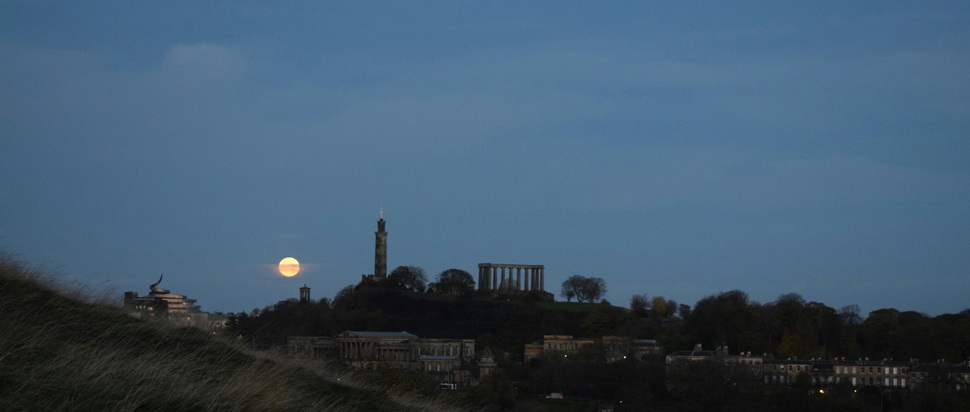Ethical Escape and Unethical Institutions
This month, we look at Edinburgh's post-festival theatre landscape, conscious of its ties to genocide and oppression
All theatregoers place special value on the delightful moment when the lights slowly dim as a production is about to begin. The chatter quietens, and the room becomes a vessel of unity. You are comfortably positioned in your velvet-cloaked seat, with your eyes opened eagerly and your ears prepared to catch the first utterance or musical note of the world you are about to enter. You are about to leave everything else behind.
Anybody who says they do not like a mechanism of escape is lying at least slightly. It is a selfish and indulgent act in the sense of the ignorance that fuels its pleasure. Despite and because of the atrocities of reality, escapism persists. How do we grapple with the lightness of relishing in escape, when it only feels like ignorance amidst structural injustice? How can something so relieving be so destructive? It is because of the ‘relief’ of ignorance that it provides that it is detrimental. At times, escapism is necessary for human survival. In those same moments, when we witness injustice and absurdity, nothing else is demanded of us except to stay alert and conscious. We cannot truly be conscious if we are in constant escape. Preservation requires a form of recharging, but never at the cost of human life, especially at the genocidal hands of depravity.
The city of Edinburgh possesses its own element of escapism, as a city that regularly welcomes performers and lovers of theatre, namely because of its August festivals. We are now in the post-Fringe term and the back-to-school season has begun. The population drops to its regular size again, and the city’s stage lights reposition to focus on those who do (or soon will) find familiarity in Edinburgh and less on the tourists who only know its overpopulated, rambunctious side. Bright-eyed first-year students arrive at the place that will soon establish a sense of their identity. The same students will later come to find that Edinburgh is much smaller than they once imagined. Constantly bumping into the people that one knows becomes more tradition than coincidence. At times, Edinburgh feels simulated. At other times – because of the glorious landscapes – it possesses an unpredictable and wonderful darkness that can only be observed deep into the night, as the moon is full, and the silhouette of Arthur’s Seat dazzles the audience below it. This is an Edinburgh worth staying for after the show.
Much like a theatre production, however, Edinburgh easily deceives, and its dark crevices are found in the city’s institutions. The University of Edinburgh hosts predominantly white theatre societies. Students of colour have anonymously communicated experiences of marginalisation and witnessed the biased decision-making produced by this disparity in representation. Societies are managed by a white majority which has reportedly failed to recognise the structural injustices faced by students of colour.
More widely, the university’s arts scene is severely underfunded. Instead of properly funding the Edinburgh Art College, for instance, the institution has built the excessive Edinburgh Futures Institute, and we can all already anticipate the irony of that name. Additionally, many Edinburgh Festival Fringe shows are hosted at rented venues ultimately owned by the University of Edinburgh. Students and staff have proven the university’s own set of unethical and heedless financial activities. In a legal analysis of the institution’s financial investments, which can be found in the link below, students and staff find that the University of Edinburgh is in flagrant violation of international law and human rights.
As students once enthralled by the aesthetics of our institution’s architecture, the design of a stage is only as convincing as long as its façade is fixed. Are you still sitting comfortably in your seat?
